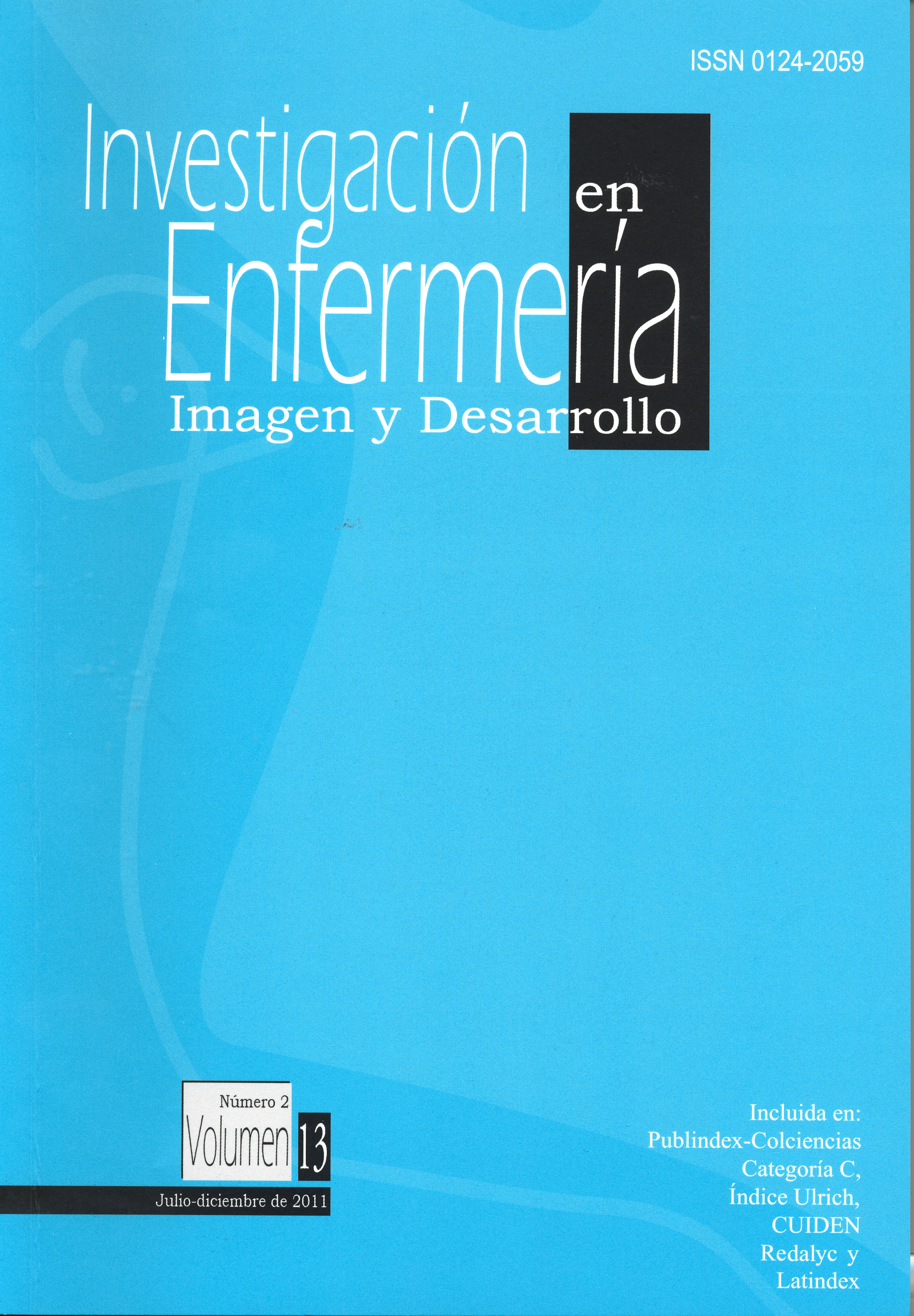Abstract
Introduction: Thoughts on the diversity of health situations performed by elderly, disabled people are usually not the same as those thoughts performed by health professionals; their explanations are more likely the product of cultural and contextual constructions, and of previous health care experiences. Main purpose: Exploring the explanations given by elderly people in disability and poverty –dwellers of five neighbourhoods on the Northeastern hills of Bogotá– to their situation. Method: Ethnographic- qualitative survey. Thirty-nine volunteers older than 60 were chosen; participant observation and ethnographic interviews took place inside their dwelling places. All the information was recorded, transcribed and organized following the proposal of M. Leininger. It was later analysed using the Cultural Care Adversity Theory and the Minayo proposals, among others. Results: explanations made by this age and social group appeared, receiving the name “Understanding health situation” and recognizing manifestations of welfare or discomfort. It was also able to name the situation, give it a meaning and establish cause relations (with psychosocial, socioeconomic and natural origins) in order to try and explain the situation. Conclusions: explanations given by our volunteers to situations called Males by them, show a big amount of complexity and multi-causality. Through these explanations they build a sort of knitting with its own internal logics that helps them in giving sense to their adverse-health experiences. Thus, nurses should prepare themselves to perform a culturally coherent care, a care able to acknowledge wisdom, beliefs and practices of the elderly in order to contribute to the production of knowledge, strategies and plans aimed at particularized health-care, congruent to the population’s diversity.
The journal Investigación en Enfermería: Imagen y Desarrollo is registered under a Creative Commons Attribution 4.0 International Public License. Thus, this work may be reproduced, distributed, and publicly shared in digital format, as long as the names of the authors and Pontificia Universidad Javeriana are acknowledged. Others are allowed to quote, adapt, transform, auto-archive, republish, and create based on this material, for any purpose (even commercial ones), provided the authorship is duly acknowledged, a link to the original work is provided, and it is specified if changes have been made. Pontificia Universidad Javeriana does not hold the rights of published works and the authors are solely responsible for the contents of their works; they keep the moral, intellectual, privacy, and publicity rights.
Approving the intervention of the work (review, copy-editing, translation, layout) and the following outreach, are granted through an use license and not through an assignment of rights. This means the journal and Pontificia Universidad Javeriana cannot be held responsible for any ethical malpractice by the authors. As a consequence of the protection granted by the use license, the journal is not required to publish recantations or modify information already published, unless the errata stems from the editorial management process. Publishing contents in this journal does not generate royalties for contributors.


